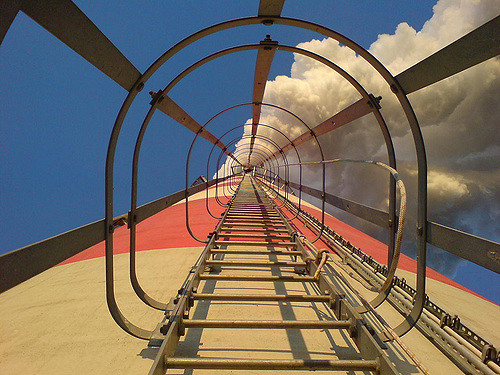Workers at Bulgaria’s largest coal-fired power plant walked off the job and marched into the streets of the capital city, Sofia, on November 29. They called on the government to protect their jobs, which means a guarantee that mines and power plants will not shut down.
A few days later, on December 4, Polish President Andrzej Duda promised workers in the country’s coal sector that he will protect their jobs and that during his days no coal mine will be closed.
On January 1, Romania will take over the EU’s rotating presidency but there are not climate related matters in the agenda. What is more, there is no sign that it will not try to protect the EU-subsidies that fund the coal sector. A quarter of the country’s energy supply comes from coal fired power sector that employs more than 20,000 workers.
The case of Bulgaria and Poland are not isolated. The tendency towards renewables, not only in EU but worldwide, as well as the growing presentation of studies and political declarations showing that coal is harming the planet, provokes sentiments of fear among the workers of the sector. There is growing concern that further implementation of green politics will lead to a mass unemployment.
“Trends are such that more coal plants have to close much earlier for the EU to be on track to be coal power free by 2030 as part of the overall transformation away from all fossil fuels,” says Kathrin Gutmann, an expert in climate and energy policy as well as advocacy, in an interview to European Interest. (https://www.europeaninterest.eu/article/kathrin-gutmann-coal-industry-europe-dying/)
For instance, Gutman says that the number of jobs in the Polish coal sector have dropped to 80,000 in 2017 from nearly 400,000 in 1990.
It is clear why workers in this sector feel insecure about their future. This is why they are calling on their politicians to protect their jobs.
For workers in the coal sector, the environment comes after their job security. Of course, this is understandable. The coal sector offered stable employment opportunities for many generations who were able to feed their families, even though this came at the expense of their health.
Coal, however, is responsible for larger health damage and it is considered a cause of death that affects the entire society. In addition, the cost to generate electricity from coal is costly and devours the money of the taxpayers since the sector is subsidised by the state.
It is for this reason that many political forces, from the Christian Democrats and the Liberals to the Social Democrats, the Greens and the Left, are in favour of the substitution of the coal generated energy with the clean renewables, although in different extension and speed.
Consequently, it must not come as a surprise that workers in the coal sector are against green politics and by extension leaning towards Euroscepticism.
This increasing sentiment among workers in the coal sector has attracted the attention of hard-core conservatives and far-right populists.
From US President Donald Trump, a world leader of climate change denialism, to the far-right parties in Europe like the German AfD which wants to take Germany out of the Paris Agreement, or the Sweden Democrats, there is a clear aversion to policies that aim to block the traditional climate damaging sectors and support the green energy alternatives.
For example, according to the Guardian, the newly appointed foreign minister of Brazil, a country that will be headed by the far-right Jair Bolsonaro, stated that the climate change is a Marxist myth and by consequence anti-Christian.
Climate change denialism became a powerful weapon in the far-right arsenal since it amasses together the fear for job loss and conspiracy theories.
This is why it is important to explain to the workers of the coal sector the reasons of the anti-coal policies together with elaborated and convincing programmes that will ensure them that there are other sectors as alternatives for employment.
It is also crucial to implement detailed programmes for those regions affected by the closure of a coal mine or a coal-fired energy supplier, which will guarantee they will remain economically secure. This is because entire regions in Europe are quite exclusively connected to coal. To reverse this trend, there is a need for new alternatives that will offer jobs.
It will be a grave mistake to abandon coal workers and offer them as electoral prey to the climate change denialists and the far-right.

